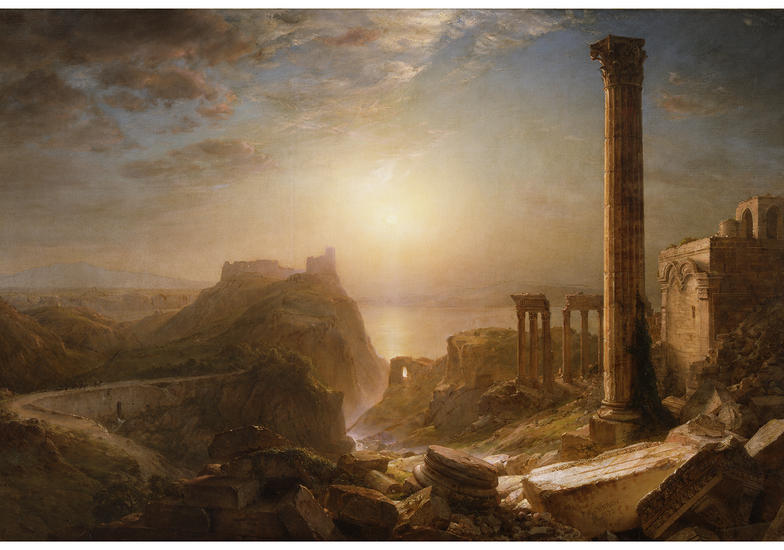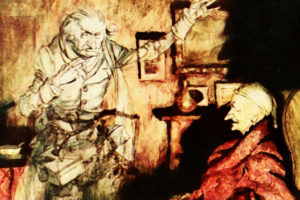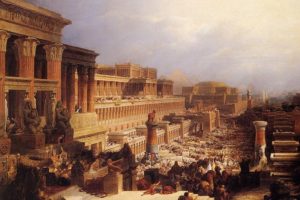As most readers are aware, I am currently a seminary student. Most people think this probably means a lot of reading. Lots of writing. Lots of Greek and Hebrew.
And… they’re right. But, this training involves some other activities. Activities such as what I will be doing this weekend. On Saturday, I and the eight other classmates that comprise my Spiritual Formation cohort group will be participating in a “Life Sculpture.” Ever seen Who’s Line is it Anyway? If so, you can probably recall the comedy game where some of the participants are actors who have their bodies posed and moved by others, or who are acting, but some of the other comedians are their voices, and they have to act and respond based upon what the person who is their “voice” says? My explanation probably doesn’t do anything by muddy the water, but to an extend this is the “Life Sculpture” activity- one person takes half of the group, picks them to be “actors” representing the different members of his or her family at the age of ten. After a little coaching, the “sculptor” sits back and watches his or her classmates act out there life (oh… but there’s no talking. It’s like a silent film).
Seem a little funny? Sound a lot like group process therapy? Its probably both of those. But, I won’t be able to give a fair assessment until next week.
However, what I have heard from those who have participated, and really tried to invest themselves in it, is that although you are the director, seeing your life in the third person can have a profound impact on your soul. Even though you “knew” all the characters and the circumstances involved, sometimes “watching” and replaying life in front of you helps your see or accept realities that you merely acknowledged before.
In this sense, I believe that this is where we see the powerful mystery of the human imagination. As discussed a few weeks ago, the Fall did not hold out on damaging this miraculous characteristic of personhood, the imagination is still an element of the Imageo Dei in us. And one such ability of the imagination is that it can use fiction (that which is not real and imagined) to actually make reality seem more vivid, more “technicolor,” more transformative… than it other wise could be.
This last week, I finished reading Gerd Theissen’s (pronounced “Tyson”) The Shadow of the Galilean. First published in the 1980’s Theissen is a German Theologian whose specialty lies in first century social and political backgrounds. Yet, this book is unlike most other textbooks in that it is a historical narrative. It is a story about a fictional character, a Galilean Jewish merchant, who lives in the first century at the time of Jesus, and who, by exploration and word of mouth research, embarks on a mission to try to learn who this Jesus guy is.
Coming from a German theologian, any reading of the work requires a critical eye for identifying his presuppositions and historical and theological presuppositions. It also requires charity from the reader, keeping in mind that Theissen is a theologian, not a fiction writer (which is a great thing, as this means that sparkling vampires or other characters that help books sell like hotcakes stay out of his reconstruction of first century Palestine).
Yet, these things considered, I found this fictional narrative to be devotionally powerful, and spiritually significant. To join Theissen in imagining conversations with poor and marginalized farmers in Nazareth, who tell of the great shame and heartache they receive in having one son abandon their life of poverty to who was allured to join the murderous and ruthless ranks of the Zealots, and another who ran to hide in the hills to simply to run away from the debt and the indentured slavery of day to day life, didn’t just pluck some heart strings. It injected human nature into the first century world that I have spent years reading textbooks on. To start to have compassion on those whose hearts were so broken, and whose lot in life seemed so helpless… begins to put me in a place where Jesus message of the Kingdom takes on a whole new level of paydirt. To this audience, teachings such as “Blessed are the poor, for yours is the Kingdom of God,” pack a powerful punch of hope. To this family, to have a third son leave them to follow this nomadic Jesus who teaches that his followers must abandon their fathers and mothers, and that in fact their true fathers and mothers and sisters and brothers are those who follow with him, and not those who bore, nursed, labored and sacrificed to raise you… this would be a traumatizing experience. Forget that some religious teachers are up in arms about this man’s statements that suggest some sort of divine status. This Jesus is tearing a part my family, leave me not only a broken and bleeding heart… but even more helpless than I was, without a son to help work my already understaffed plot of land for survival.
Movies that make us cry don’t simply exploit our emotions. Sometimes the world of historical reconstruction allows us to explore the realities of the human soul- even our own soul- in ways we couldn’t do otherwise. Sometimes letting one’s imagination roam out of the box, and off the beaten path of historical or even self research, can lead to the discovery of new green pastures of life and hope.
So, what have you done lately to let your imagination help you explore the hidden habits of your soul?





1 Comment
Leave your reply.